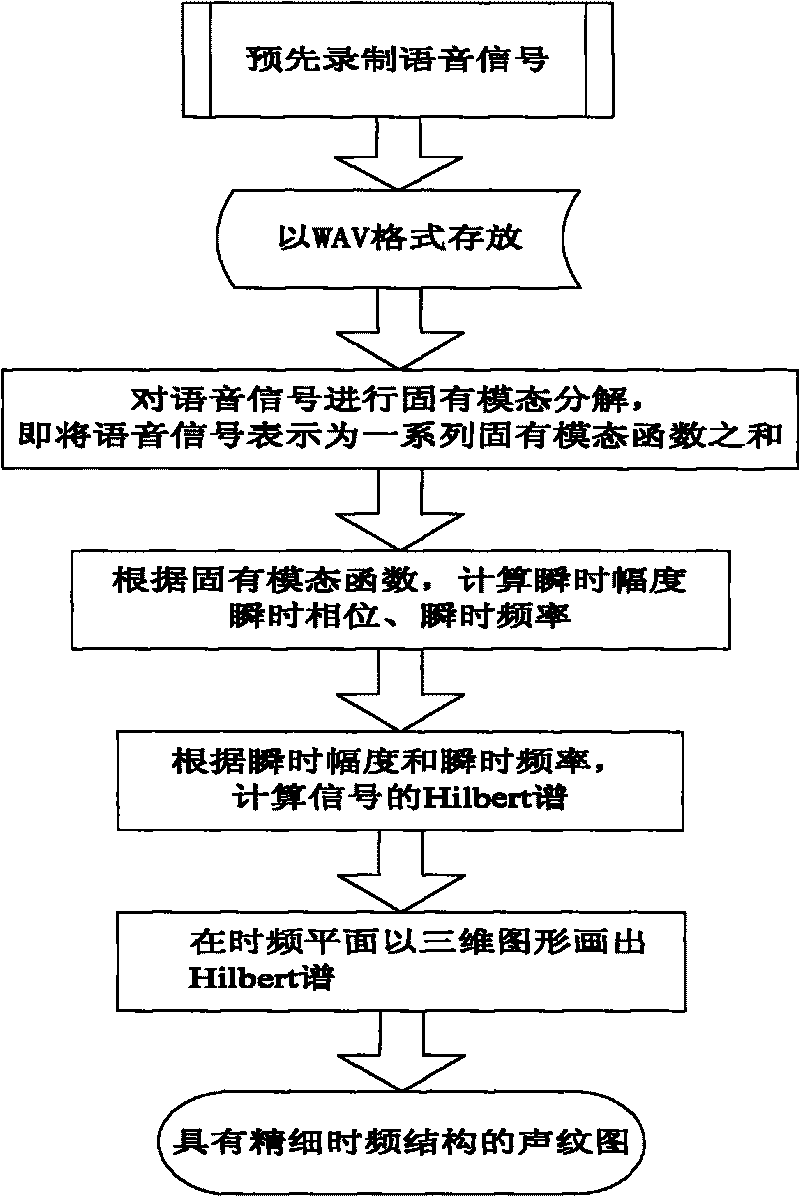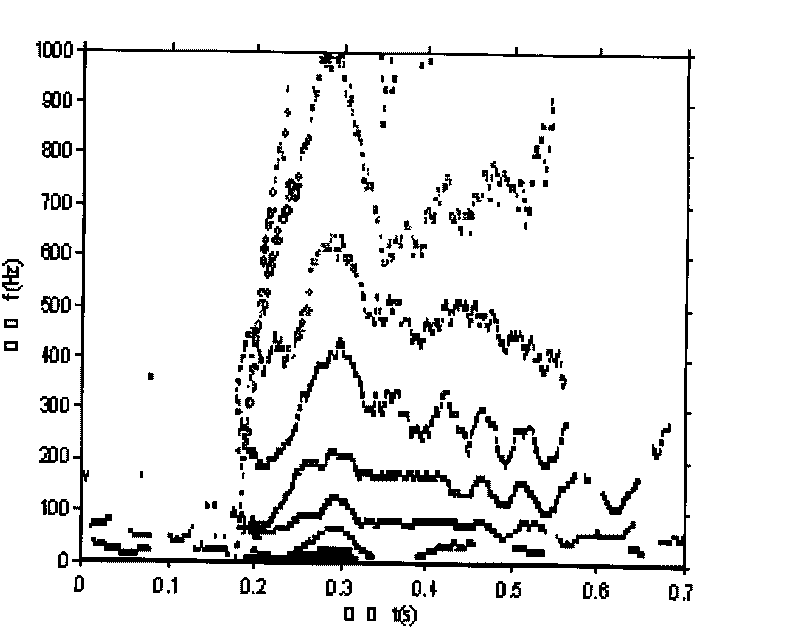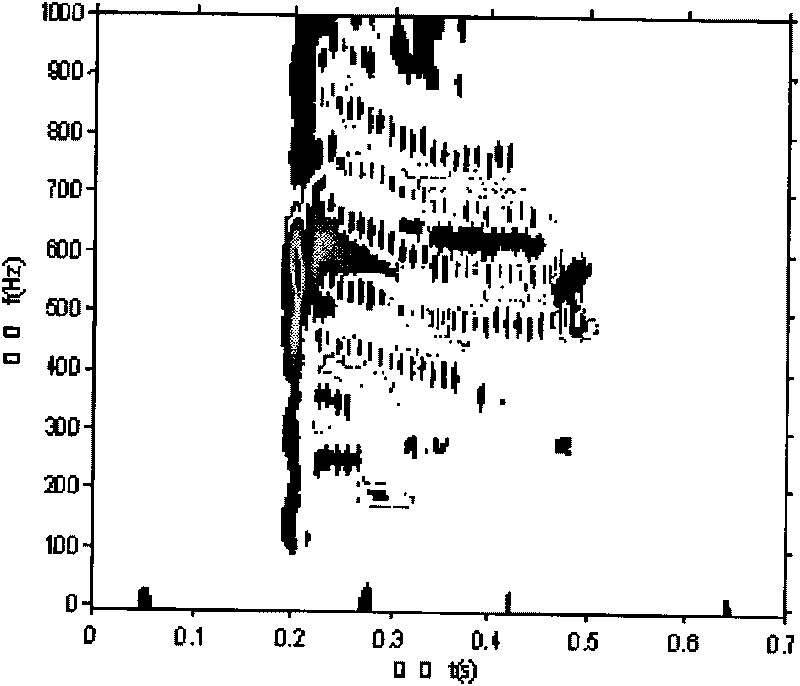Method for acquiring vocal print picture with refined time-frequency structure
A voiceprint, time-frequency technology, applied in speech analysis, instruments, etc., can solve the problems of unable to provide voiceprint, unable to provide time-frequency structure, etc.
- Summary
- Abstract
- Description
- Claims
- Application Information
AI Technical Summary
Problems solved by technology
Method used
Image
Examples
specific Embodiment
[0072] A specific embodiment of the present invention is as follows:
[0073] Step 1: Record the voice signal, filter it if necessary, and store it in WAV format.
[0074] Step 2: Perform intrinsic mode decomposition on the recorded speech signal, and express the speech signal as the sum of a series of intrinsic mode functions.
[0075] Step 3: Find the instantaneous amplitude and instantaneous frequency according to the intrinsic mode function.
[0076] Step 4: Calculate the Hilbert spectrum of the signal.
[0077] Step 5: Draw the Hilbert spectrum in a three-dimensional graph on the time-frequency plane to obtain a voiceprint image with a fine time-frequency structure.
[0078] In order to compare the actual effect of the present invention, the "five" in English by an adult male voice is used as an experimental signal (this speech signal comes from a publicly available speech database). Obtain the voiceprint figure with fine time-frequency structure by the method of the p...
PUM
 Login to View More
Login to View More Abstract
Description
Claims
Application Information
 Login to View More
Login to View More - R&D
- Intellectual Property
- Life Sciences
- Materials
- Tech Scout
- Unparalleled Data Quality
- Higher Quality Content
- 60% Fewer Hallucinations
Browse by: Latest US Patents, China's latest patents, Technical Efficacy Thesaurus, Application Domain, Technology Topic, Popular Technical Reports.
© 2025 PatSnap. All rights reserved.Legal|Privacy policy|Modern Slavery Act Transparency Statement|Sitemap|About US| Contact US: help@patsnap.com



